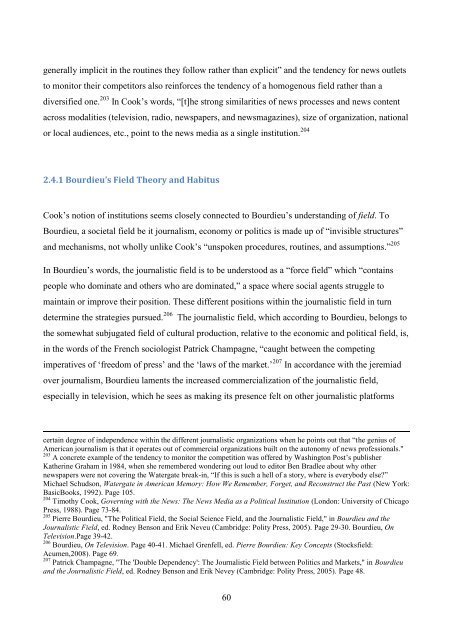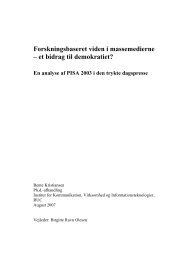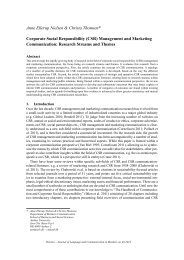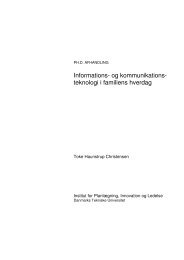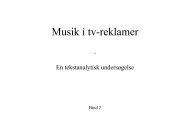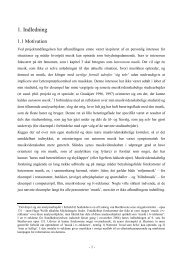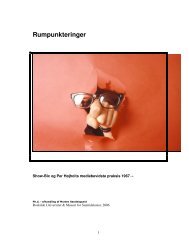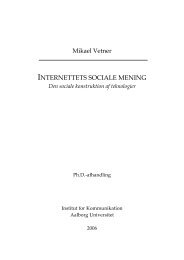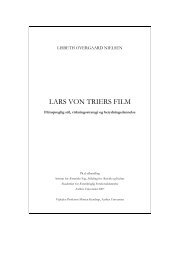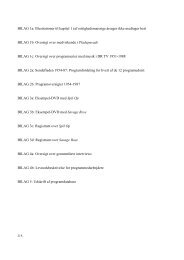The Jeremiad Over Journalism
The Jeremiad Over Journalism
The Jeremiad Over Journalism
You also want an ePaper? Increase the reach of your titles
YUMPU automatically turns print PDFs into web optimized ePapers that Google loves.
generally implicit in the routines they follow rather than explicit‖ and the tendency for news outlets<br />
to monitor their competitors also reinforces the tendency of a homogenous field rather than a<br />
diversified one. 203 In Cook‘s words, ―[t]he strong similarities of news processes and news content<br />
across modalities (television, radio, newspapers, and newsmagazines), size of organization, national<br />
or local audiences, etc., point to the news media as a single institution. 204<br />
2.4.1 Bourdieu’s Field <strong>The</strong>ory and Habitus<br />
Cook‘s notion of institutions seems closely connected to Bourdieu‘s understanding of field. To<br />
Bourdieu, a societal field be it journalism, economy or politics is made up of ―invisible structures‖<br />
and mechanisms, not wholly unlike Cook‘s ―unspoken procedures, routines, and assumptions.‖ 205<br />
In Bourdieu‘s words, the journalistic field is to be understood as a ―force field‖ which ―contains<br />
people who dominate and others who are dominated,‖ a space where social agents struggle to<br />
maintain or improve their position. <strong>The</strong>se different positions within the journalistic field in turn<br />
determine the strategies pursued. 206 <strong>The</strong> journalistic field, which according to Bourdieu, belongs to<br />
the somewhat subjugated field of cultural production, relative to the economic and political field, is,<br />
in the words of the French sociologist Patrick Champagne, ―caught between the competing<br />
imperatives of ‗freedom of press‘ and the ‗laws of the market.‘ 207 In accordance with the jeremiad<br />
over journalism, Bourdieu laments the increased commercialization of the journalistic field,<br />
especially in television, which he sees as making its presence felt on other journalistic platforms<br />
certain degree of independence within the different journalistic organizations when he points out that ―the genius of<br />
American journalism is that it operates out of commercial organizations built on the autonomy of news professionals."<br />
203<br />
A concrete example of the tendency to monitor the competition was offered by Washington Post‘s publisher<br />
Katherine Graham in 1984, when she remembered wondering out loud to editor Ben Bradlee about why other<br />
newspapers were not covering the Watergate break-in, ―If this is such a hell of a story, where is everybody else?‖<br />
Michael Schudson, Watergate in American Memory: How We Remember, Forget, and Reconstruct the Past (New York:<br />
BasicBooks, 1992). Page 105.<br />
204<br />
Timothy Cook, Governing with the News: <strong>The</strong> News Media as a Political Institution (London: University of Chicago<br />
Press, 1988). Page 73-84.<br />
205<br />
Pierre Bourdieu, "<strong>The</strong> Political Field, the Social Science Field, and the Journalistic Field," in Bourdieu and the<br />
Journalistic Field, ed. Rodney Benson and Erik Neveu (Cambridge: Polity Press, 2005). Page 29-30. Bourdieu, On<br />
Television.Page 39-42.<br />
206<br />
Bourdieu, On Television. Page 40-41. Michael Grenfell, ed. Pierre Bourdieu: Key Concepts (Stocksfield:<br />
Acumen,2008). Page 69.<br />
207<br />
Patrick Champagne, "<strong>The</strong> 'Double Dependency': <strong>The</strong> Journalistic Field between Politics and Markets," in Bourdieu<br />
and the Journalistic Field, ed. Rodney Benson and Erik Nevey (Cambridge: Polity Press, 2005). Page 48.<br />
60


